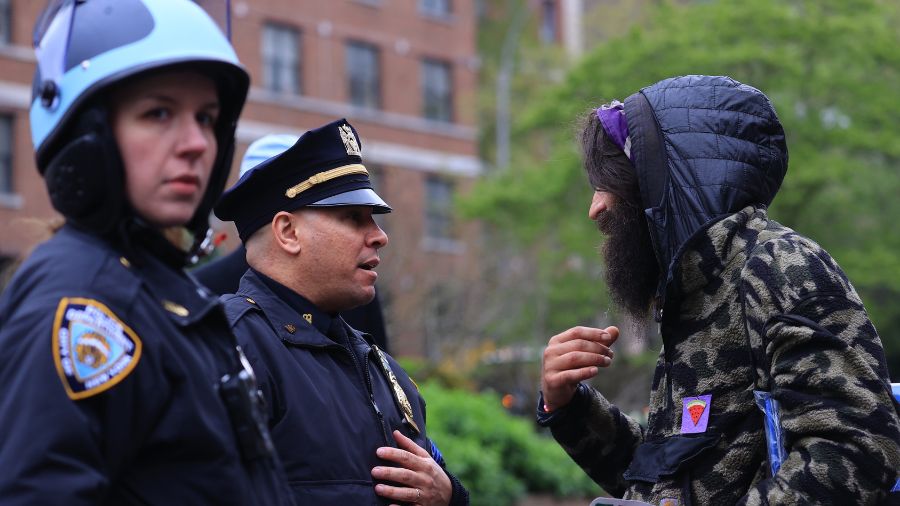Young voter defends Seattle initiative to remove big money from politics
Oct 24, 2015, 3:15 PM | Updated: 10:22 pm

Initiative 122 would create a system to publicly fund campaigns in Seattle, and take other measures in an attempt to remove the influence of money in politics. (Richard D. Oxley/MyNorthwest)
(Richard D. Oxley/MyNorthwest)
Seattle voters could reshape future elections, but KIRO Radio’s Jason Rantz wonders if the system behind it is a sustainable one.
Initiative 122, currently on the ballot in Seattle, would establish a publicly funded election system and takes other steps aimed at removing the influence of big money in politics.
KIRO Radio’s Jason Rantz opposes the initiative. But that didn’t stop Sonny Nguyen from defending the it.
Nguyen is the engagement coordinator for Washington Bus, a group specializing in young voters and support for I-122. Washington Bus has received funding from Honest Elections Seattle, the campaign for the initiative.
“The reason that young people are excited about Initiative 122 is that it is really moving to put the power of politics back into the hands of common people,” Nguyen said.
“I think there’s an idea that young people don’t vote because they don’t care,” he said. “But the truth is that it is an inaccessible system. Part of that is the big money. A lot of young people don’t trust the system because of all the big money in it, or are just very wary or are unsure if their voices count in a system that’s been dominated by giant corporations for so long.”
And “big money” is the core target for I-122. Nguyen argues the current election system allows for too much money to flood campaigns in large sums from corporations or interests groups. Therefore, drowning out the voices of average voters without the ability to spend massive amounts of money on a candidate.
Related: Honest Elections Seattle makes the case for publicly funded elections
“If you are giving a lot of money, and as much money as 200-300 people in their district combined, then it’s shifting priorities so they talk about the things that you want to talk about, and big corporations want to talk about, but not the things that people in their district want to talk about,” Nguyen said. Those people are young voters and millennials that Washington Bus works with.
But Rantz notes that Honest Elections Seattle has large contributions of its own.
“Why should Millennials support a campaign that wants to get big money out of campaigns, when it’s being funded by big money,” he said, noting that groups such as Washington Community Action Network has given $313,000 to the I-122 campaign. Every Voice has donated $221,000, and private citizen Sean Eldridge has given $200,000.
“If you look at the donors to I-122, it’s ironic that you’ve got a few people giving a lot of money to a campaign that wants to get big money out of [elections],” Rantz said.
“Doesn’t that mean that big money can be used for good?” he said, noting that local candidates who are popular with voters have received lots of money for their campaigns. Rantz points to Kshama Sawant, who has setfundraising records during her current campaign, both with money and the number of people donating to her campaign.
Sawant is among a handful of local candidates who have endorsed I-122. The initiative has also received endorsements from local Democratic organizations and groups such as the League of Women Voters. If approved, it would create a voluntary, public funding option for candidates wishing to run for local office. If a candidate chooses to use the public funding system I-122 creates, they would have access to vouchers that each voter is given. Each Seattle voter would be given $100 worth of vouchers, which they can donate to whichever candidate they choose.
While the public financing portion of the initiative has been widely discussed, the initiative actually does far more than publicly fund local campaigns, according to Nguyen.
“The vouchers are part of it and it’s the part everyone wants to talk about. But there is also a lot of other stuff that Initiative 122 does,” Nguyen said. “It helps increase transparency in the system and holds people accountable to voters. It takes those 16 hours a day that candidates are spending calling donors, and instead go to doors talking to people.”
“And that is what this is about for me … getting candidates out in neighborhoods talking and hearing those people,” he said.
The initiative will ban any campaign contributions to any candidate from parties that have had a contract worth more than $250,000 with the city in the prior two years. Candidates would also be barred from accepting contributions from lobbying entities that have paid $5,000 or more to lobby the city within the prior two years. Candidates must also report their campaign contributions collected electronically.
Signature gatherers who are paid must disclose that they are paid to all people they attempt to gather signatures from, under the initiative.
The city’s mayor, council members, attorney or other top paid staff will be banned from paid lobbying for three years after their term in office ends.
Related: Former Seattle Ethics Commission Chair calls I-122 flawed
Despite the multiple aspects of the initiative, Rantz can’t help but wonder how it will fund itself.
“Let’s assume that 125,000 voters [use the vouchers] because that’s a low bar that’s been set,” Rantz said noting the recent low voter turnout during the primaries; the lowest turnout since World War II.
“One hundred dollars per voter comes out to more than $12.5 million. So how would this project be funded?” he asked, noting that the initiative calls for raising $30 million over 10 years, roughly amounting to $3 million raised each election year. The numbers didn’t add up for Rantz.
Nguyen admits that the finance issues are beyond his position as engagement coordinator and referred Rantz to campaign authorities who could dive as deep into the numbers. Instead, he aims at promoting all aspects, as well as the public funding option, that young voters such as Nguyen are hyping.
“Young people are more interested in their direct impact on [candidates] … how exciting would it be to have candidates coming to my door?” Nguyen said. “I have a great voting record, but I’ve never had a candidate send me a mailer, or come to my door and talk to me about issues.”














